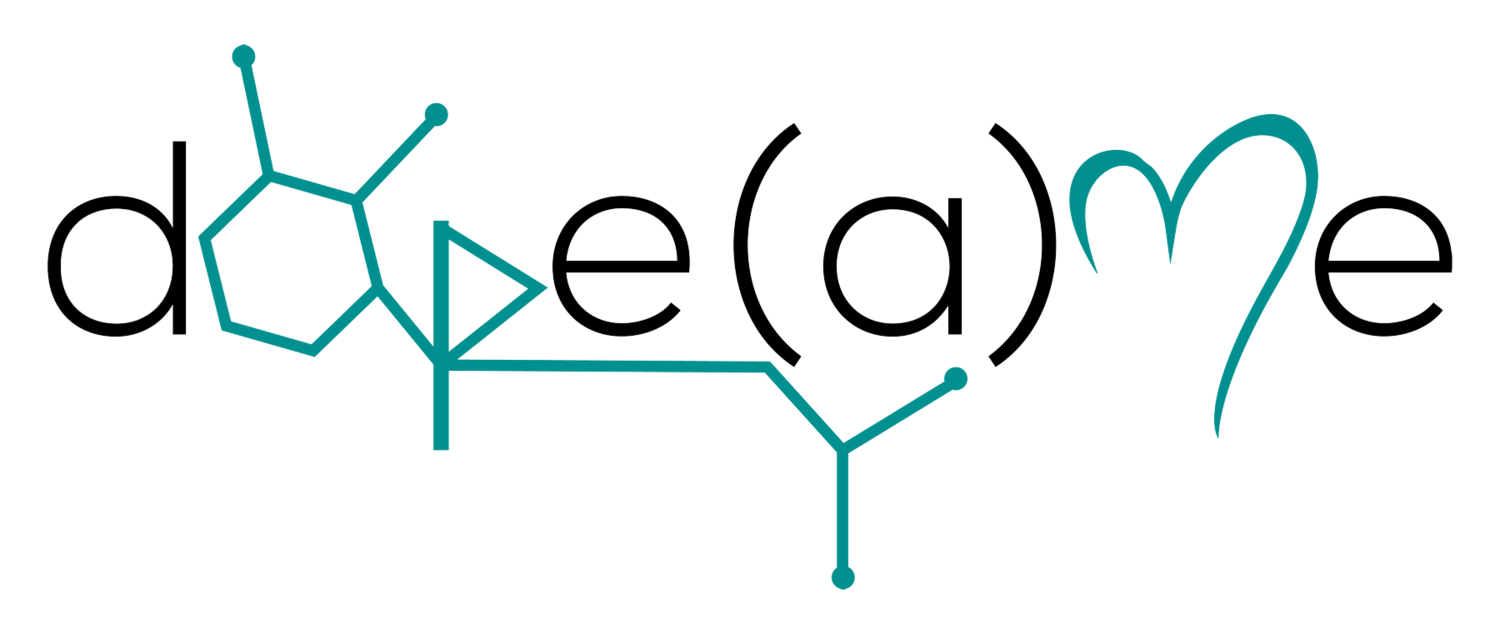Here it is, the third article of the 12 Steps to a Whole New Mind project. Check out www.brandedyyc.com for more great articles and insights into what's going on in beautiful yyc ;)
ARTICLE # 3 OF 12 STEPS TO A WHOLE NEW MIND
Welcome back soul-searchers. Last month I introduced you to the second step of this 12 step series, which highlighted the importance of positive self-talk and a morning routine to support you in retraining your thoughts to serve you in a positive and efficient way. If you didn’t catch that article yet, circle back and check it out so that you can appreciate the foundation and sequence in which I am layering these concepts, tools and practices.
My focus for this month’s article is one that I am fascinated by and am still learning and exploring on a daily basis. I am talking about FEAR. Fear of failure. Fear of rejection. Fear of making an irreversible mistake. Fear of death. Fear of playing too big and having to keep up with our own passion and expectations. And conversely, fear of not living life to our fullest. The kind of fear that keeps you small, stagnant, confused, lost, lonely, and ultimately, unhealthy and unhappy.
We all face fear on a daily basis, whether we brush up against actual physical danger or simply focus too much on the uncertainty and potential threats all around us. I have studied, played, practiced and explored my fears for the past several years. I have morphed myself into a fear-loving creature compared to the fear-loathing and self-imposed victim of fear that I once was. As I have done with any concept I am curious about and desire to loosen the grips on, I start with gaining a deep understanding of the purpose and etymology of the term.
So what is FEAR, really?
The word ‘fear’ is our term to describe calamity, danger, or something that frightens us. Fear is a signal from our limbic system telling us that something is unknown up ahead. Either our past experience is reminding us of danger or the unknown factors in the situation are perceived as potential for danger. From an evolutionary perspective, we have survived because our overactive Fight or Flight response (Sympathetic Nervous System) grabs our attention with a spurt of the steroid hormone cortisol anytime we feel, smell, see, or think about potential threats to our safety.
Cortisol gives us that “do something” feeling, along with a burst of energy to run, fight or freeze. This remarkable system kept our ancestors alive and continues to keep us fortunate evolution winners alive to this day. The chemical cortisol has gotten somewhat of a bad reputation because of our overly stressed, anxious and fearful ways of living. But in small doses, cortisol is healthy and necessary. We need a bit of stress, and in fact, a bit of trauma is actually good for us, as it builds resiliency and gratitude for the precious nature of life and its many gifts.
The inspiring author and holistic health expert Dr. Lissa Rankin (check her out, www.LissaRankin.com) tells us that despite the few actual physical threats in our immediate environment (at least in our first world country), the average person activates their Fight or Flight system over 50 times per day, and upwards to 200 times per day.
What does this mean?
We are flooded with cortisol, which halts almost every other process in the body and mind. We have natural healing abilities that only work when our body is in a state of calm or relaxation, which is not the reality for anyone who lives an anxious, stressed out or fearful life.
With that said, of course there will be legitimate reasons to feel stress or fear, and to expect a life without these bumps and challenges, is to be naïve to the nature of life. But how can we deal with life’s peaks and valleys in a more balanced and healthy way? How can we lean into fear, embrace our struggles, celebrate our challenges, and come out the other side stronger, more resilient and braver to handle the next storm?
Build your Armour
Author and Nobel Prize winner in Economics, David Kahneman says, “We think with our body.” We touched on this in last month’s article. The words we use when we talk to ourselves have an immediate and direct impact on our physiology. If we want to change the way we live our life, the way we perceive the world and the way we show up (meaning the energy we bring into every situation) it starts with our thoughts. One thing is for sure, expecting the unexpected is a great way to limit the impact when surprises pop up. There will always be uncertainty and unknown factors to play with and accommodate, so expecting curveballs will help you laugh and get curious versus feeling like a victim or beating yourself up for not being prepared enough.
One thing that has helped me immensely is to think about courage as a muscle to flex. The more I practice courage by pushing outside my comfort zone and stepping up to the plate despite my nerves, I have found it to become easier and easier, and, dare I say it, it has become fun. We get used to absolutely anything we expose ourselves to on a frequent basis, for better or for worse. Brene Brown, in her book Daring Greatly, says, “The willingness to show up changes us. It makes us a little braver each time.”
The fact of the matter is, when we are honest about what we desire and what we want to create in our lives, fear will come along for the ride and will most likely ride shotgun. We fear that we will not get what we want. We fear that we will be rejected. We fear that we are not worthy of the big and powerful goals we declare we desire. It seems, at first, that we can’t win. It’s as though being vulnerable and making our bold affirmation of the life we desire is ultimately setting ourselves up for disappointment. The problem is, as Danielle LaPorte so beautifully points out, “when you cease to desire, you cease to evolve.”
We have to acknowledge ourselves for our effort, for our passion and for our resiliency and ability to learn, versus rating our value and worth simply on the day’s level of productivity or how many people acknowledged us for the work we are doing. We build our armour by reminding ourselves daily to stop taking ourselves so seriously, to focus on improving versus proving and to explore the edges of our comfort zone. Stepping into the light of our desire, making bold declarations of the life you want to create, and setting big goals to inspire and motivate action, also comes with the reality of facing our hypocrisy. It means we must joust with our shadows, and swim through our deeply ingrained habits of thought and action that have gotten us to where we are today. You have to be willing to feel and explore the full range of your emotions, reactions, and habits, in order to heal and develop a healthy relationship with fear and your inner self-talk.
It’s all in the relationship
Fear itself is not going to change, but your relationship with fear can change. First, acknowledge fear for what it really is, an emotional reaction and energy coursing down a neural pathway of least resistance. Remember that your body and mind are overprotective and are signalling that there is uncertainty in the mix, or that you have experienced something similar in your past that did not produce an outcome you loved. But today is a new day and you don’t have to allow fear to be the backseat driver it strives to be.
In the moment you feel stress, anxiety, or fear reaching for the wheel, you can implement the techniques of Mindsight to direct energy away from the Fight or Flight response and towards the problem-solving area of your brain by asking yourself quality introspective questions. The quality of your question will determine the quality of your answer, and ultimately, the quality of your psychology or mindset. Avoid bringing in judgement and unnecessary victimizing by asking, “Why does this always happen to me?,”or “What’s wrong with me?”, or “why does everybody else have it easier than me?” Rather, spark curiosity and a desire to understand by asking “how do I want to show up here?,” or “what do I really want?,” or “how do I want to feel at the end of today?” or “what reminders do I need here to ensure I lean into this struggle?” See the difference?
In the book ‘Mindsight’ by Daniel J. Siegal, he describes Mindsight as,
“…a kind of focused attention that allows us to see the internal workings of our own minds. It helps us to be aware of our mental processes without being swept away by them, enables us to get ourselves off the autopilot of ingrained behaviours and habitual responses, and moves us beyond the reactive emotional loops we all have a tendency to get trapped in.”
Mindsight is the act of taking a step back to observe and notice what you are feeling, what your reactions and impulses are directing you towards, and what meaning you are projecting into this reality. It is you standing on the balcony, observing without judgment and sticking to the “brass tacks” of what the moment presents. It is you saying, “Wait a second, what am I noticing here? What do I really want?”
How else can we start to curb our body’s overactive Fight or Flight response? It is exhausting to feel stressed, anxious and fearful throughout your day. We all have so much going on in our lives, and at times, the responsibilities on our shoulders can feel like a weight too heavy to carry. It is so important to find time daily to reconnect with yourself. Slow down and connect with your breath and shine light on the advantages of wherever you are in this moment. We have goals. We strive to be better, smarter, more successful, more experienced, and more respected, but that doesn’t have to be a trade-off with joy and contentment in the moment at hand. Challenge yourself to spend 10 to 30 minutes each day, to take a step back and notice how you are feeling and what habits you engage in that are no longer serving who you want to be.
If you want to dig into this deeper or want to learn more, check out my website (www.dopeame.com) or reach out to me directly (marinmccue@gmail.com). I am teaching an online course, The Path to Change, beginning April 3. It is set up as a 40 day challenge, and I am taking registrations right up until that date. You can find all the information and the registration link on my website.
Check out the Events tab on this website (or Workshops Scheduled on my website) to learn about my next collaborative project with Branded. We are taking Candlelight Yoga and Goals to the next level, as a three-part series that will help you become the leader you want to be in your own life.
Book Recommendations:
Mindsight by Daniel J. Siegal
The Desire Map by Danielle LaPorte
Daring Greatly by Brene Brown

